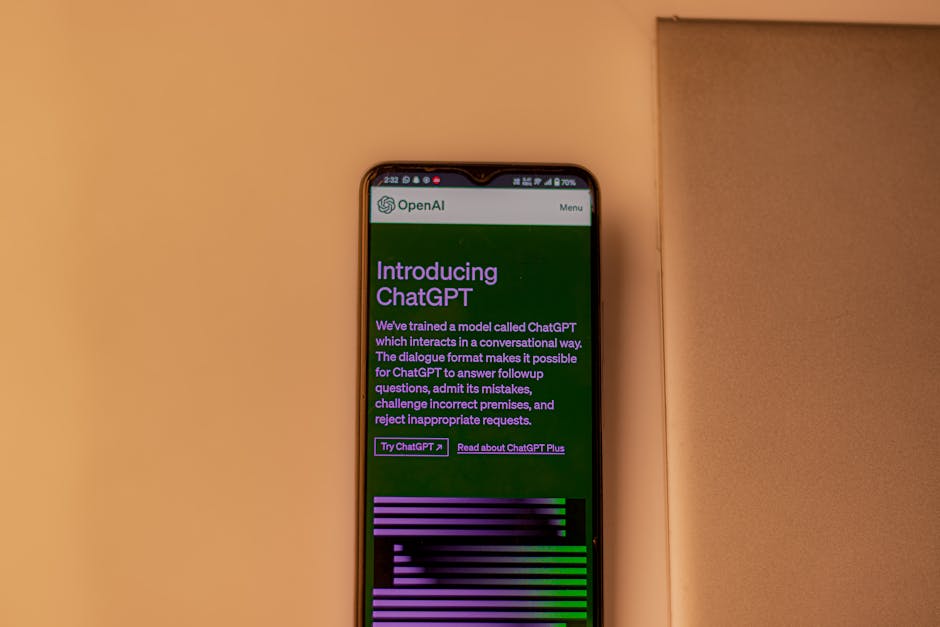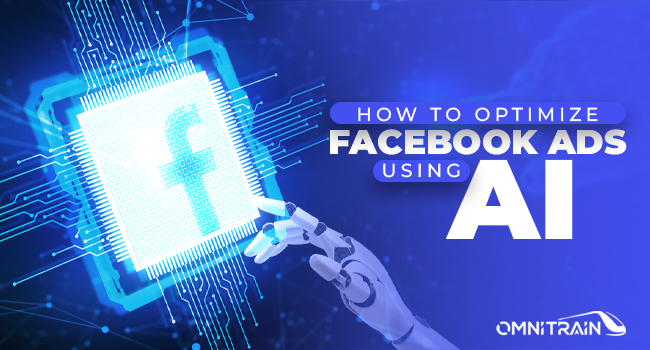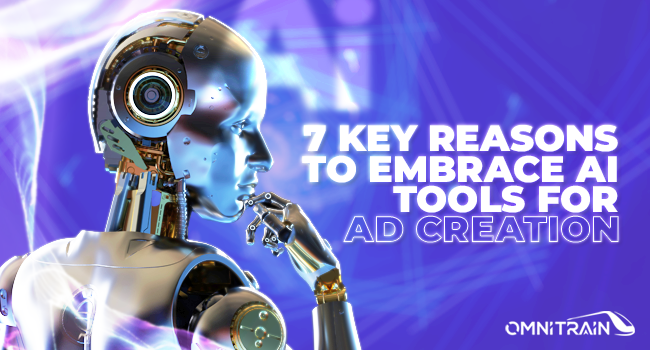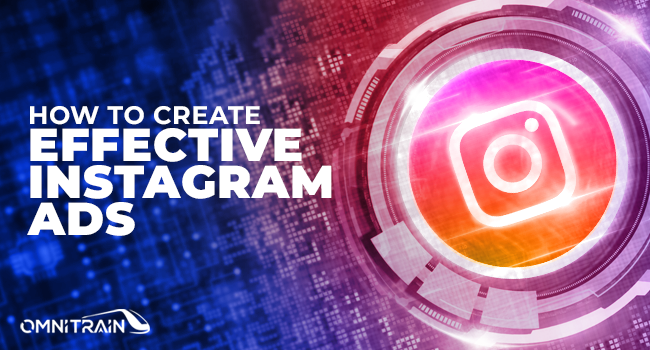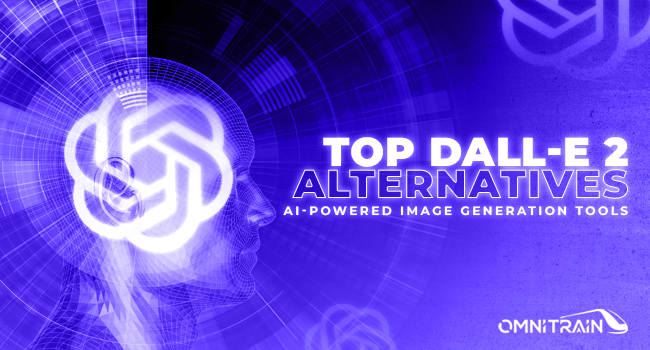AI Generated Marketing Campaigns: Top 5 Brilliant Wins
AI generated marketing campaigns are open uping new levels of innovation and personalization, reshaping how brands connect with their audiences. Fueled by artificial intelligence, these campaigns blend data-driven insights with creative storytelling to craft highly engaging ads that resonate with consumers.
- Personalization: Tailor messages to individual preferences and behaviors
- Efficiency: Streamline processes with automation and AI tools
- Engagement: Create emotionally resonant ads using data insights
As AI continues to evolve, it empowers marketers to deliver more personalized and impactful campaigns at scale. From understanding customer needs to optimizing ad spend, AI provides the tools necessary for modern marketing success.
I’m Josh Benson, founder of OmniTrain. I’ve spent years helping businesses harness the power of AI generated marketing campaigns to drive engagement and growth. Now, let’s explore how AI is revolutionizing marketing and creating truly personalized experiences.

AI generated marketing campaigns vocab to learn:
– ai design generator
– ai image generator from text
– create ai images
The Rise of AI in Marketing
In today’s digital world, AI tools are changing marketing by making it more precise and personalized. These tools help businesses understand their customers better and create campaigns that speak directly to their needs.
AI Tools
AI tools have become essential in marketing. They automate repetitive tasks and provide insights that were once impossible to gather. For example, chatbots use natural language processing to engage customers in real-time conversations, offering support and personalized recommendations. AI tools like Phrasee help companies like Farfetch craft email content that increases open rates by analyzing past performance and predicting what will resonate with recipients.
Customer Segmentation
AI excels at customer segmentation, breaking down large audiences into smaller, more manageable groups based on shared characteristics. This segmentation allows marketers to tailor messages and offers to specific customer needs. Volkswagen’s use of AI in media buying in Germany is a prime example. By using AI recommendations, they achieved a 14% increase in dealership orders for a particular model, proving that AI-driven segmentation can lead to significant business results.
Data-Driven Strategies
Data is the backbone of effective marketing, and AI makes it easier to harness. With AI, marketers can analyze vast amounts of data quickly and accurately. This analysis helps them understand customer behavior, predict future actions, and make informed decisions. Companies like Starbucks use their AI platform, Deep Brew, to analyze customer data and optimize store operations, from inventory management to personalized drink recommendations.
AI-driven strategies are not just about numbers; they’re about creativity too. AI can generate unique ad concepts and visuals that align perfectly with brand messaging. For instance, BMW’s campaign used AI-generated art to project stunning visuals onto their cars, creating an emotional connection with their audience without saying a word.
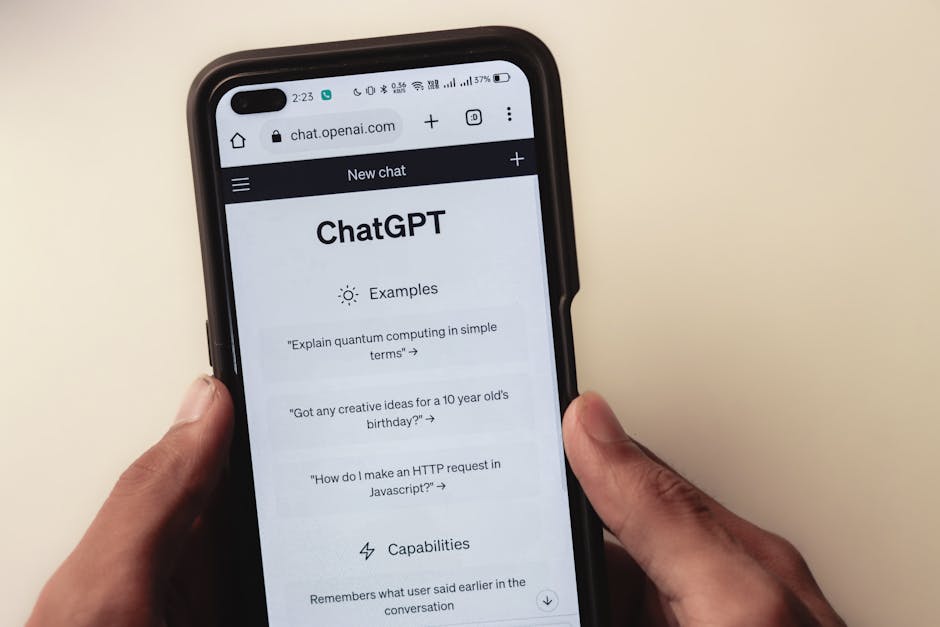
As AI continues to evolve, it empowers marketers to create campaigns that are more engaging and effective. By leveraging AI tools, customer segmentation, and data-driven strategies, businesses can deliver truly personalized experiences that resonate with their audience.
Top AI Generated Marketing Campaigns
When it comes to AI-generated marketing campaigns, some brands are leading the charge with innovative strategies that blend creativity and data-driven insights. These campaigns are not just about selling a product; they’re about creating personalized experiences that resonate deeply with consumers.
Innovative AI-Driven Campaigns
Take Heinz, for example. The “A.I. Ketchup” campaign used the text-to-image AI generator DALL-E 2 to visualize what “ketchup” looks like. The AI consistently produced images that resembled Heinz’s iconic product, even when given abstract prompts like “Renaissance Ketchup Bottle.” This campaign showcased Heinz as more than just a ketchup brand—it proved they are the ketchup brand. The campaign went viral, generating over 1.15 billion earned impressions globally and achieving an engagement rate 38% higher than previous campaigns.
Another standout is Coca-Cola’s “Create Real Magic” platform, which allowed users to generate artwork using DALL-E 2 and ChatGPT. The platform encouraged user-generated content, resulting in over 120,000 pieces of artwork. Coca-Cola extended this initiative by launching an AI-co-created flavor, Y3000, and an immersive campaign that engaged consumers through QR codes. This approach not only strengthened consumer connections but also personalized the brand experience.
Personalized Experiences
Nutella took personalization to new heights with its “Nutella Unica” campaign. By leveraging AI, Nutella designed 7 million unique jar labels, each a one-of-a-kind creation. This campaign tapped into consumer desires for uniqueness and collectibility, resulting in a sell-out success within a month of launch in Italy. The personalized jars, while each different, maintained brand recognition through Nutella’s iconic lettering, reinforcing their connection with customers.
Data-Driven Creativity
AI’s ability to analyze data and generate creative content is exemplified by Nike’s “Never Done Evolving” campaign. The sports apparel giant used AI to celebrate the career of a sponsored athlete, blending historical data with innovative storytelling. This approach allowed Nike to create a campaign that was both emotionally engaging and data-informed, demonstrating how AI can improve brand narratives.
These AI-generated marketing campaigns not only highlight the potential of AI in advertising but also underscore the importance of balancing data with creativity. By using the power of AI, brands can craft campaigns that are not only innovative but also deeply personalized, creating memorable experiences for their audiences.
AI Techniques Changing Marketing Campaigns
AI is changing marketing campaigns by using advanced techniques like machine learning, natural language processing, image recognition, and predictive analytics. These technologies help brands create more personalized and impactful campaigns.
Machine Learning: Precision Marketing
Machine learning (ML) is like having a smart assistant that helps marketers understand customers better. It can analyze tons of data to find patterns, segment audiences, and predict future actions.
- Pattern Recognition: ML detects trends and anomalies in data, helping brands understand customer behavior and preferences.
- Audience Segmentation: It divides customers into precise groups based on demographics, behavior, and purchase history, allowing for targeted campaigns.
- Budget Allocation: ML optimizes budget distribution by analyzing past performances, ensuring money is spent where it works best.
- Dynamic Personalization: ML customizes content for individuals, enhancing engagement and conversion rates.
Natural Language Processing: Understanding Customers
Natural Language Processing (NLP) helps brands communicate better by analyzing text data like reviews and social media comments.
- Sentiment Analysis: NLP gauges public sentiment towards brands or products, allowing marketers to adjust messaging.
- Content Optimization: It helps craft content that resonates with audiences and improves search engine visibility.
- Voice Search: As voice search grows, NLP ensures content aligns with verbal queries, boosting visibility.
Image Recognition: Visual Engagement
Image recognition technology is reshaping how brands use visuals in campaigns. It can identify objects, people, and scenes in images, enabling innovative marketing strategies.
- Visual Content Creation: AI tools like DALL-E 2 generate images from text prompts, streamlining the creative process.
- A/B Testing: Marketers can quickly test different visuals to see which resonates best with audiences, improving engagement.
Predictive Analytics: Forecasting Success
Predictive analytics uses data to forecast campaign outcomes, helping marketers make informed decisions.
- Campaign Prediction: It estimates potential success before launch, allowing for proactive adjustments.
- Customer Behavior Forecasting: Predicts future actions like purchase likelihood, aiding in targeting and personalization.
- Budget Optimization: Identifies the most effective channels and tactics, reducing waste and increasing ROI.
These AI techniques are revolutionizing marketing by making campaigns more precise, personalized, and effective. Brands using these tools can better understand and engage their audiences, leading to more successful marketing efforts.
Benefits of AI in Advertising
Artificial Intelligence is reshaping the advertising landscape, offering a range of benefits that were once unimaginable. Let’s explore how AI is enhancing creativity, personalizing content, and optimizing budget allocation.
Improved Creativity
AI is a game-changer for creativity in advertising. Tools like DALL-E and Midjourney allow marketers to generate unique visuals quickly. These tools help produce a wide range of designs, saving time and opening up new creative possibilities.
Example: Heinz used DALL-E to create a campaign where AI-generated images of ketchup bottles all resembled Heinz bottles. This clever use of AI not only won awards but also engaged customers by inviting them to create their own designs.
Personalized Content
Personalization is key to successful advertising, and AI makes it easier than ever. By analyzing user data, AI can tailor ads to individual preferences, increasing relevance and engagement.
- Dynamic Adjustments: AI can change ad content in real-time based on user interactions, ensuring the message always hits home.
- Customer Insights: By examining past behaviors, AI predicts what content will resonate with each user, making ads feel personal and relevant.
Case Study: Headspace uses AI to personalize meditation exercises, offering users a custom experience that evolves with their progress and preferences.
Optimized Budget Allocation
AI helps advertisers get the most bang for their buck. By analyzing past campaign data, AI determines the best way to allocate budgets, ensuring funds are spent where they’ll have the greatest impact.
- Efficiency: AI automates bidding processes, reducing costs and maximizing ROI.
- Data-Driven Decisions: Marketers can rely on AI to forecast campaign performance, allowing for strategic adjustments that optimize spending.
Fact: Machine learning can analyze campaign performance and adjust budgets accordingly, ensuring resources are directed to the most effective channels.
In summary, AI in advertising means smarter, more efficient, and more creative campaigns. It’s not just about saving money—it’s about delivering the right message to the right person at the right time. This technology is changing how brands connect with their audiences, making every advertising dollar count.
Frequently Asked Questions about AI Generated Marketing Campaigns
Can AI create a marketing campaign?
Absolutely! AI can create a marketing campaign by analyzing data, understanding customer preferences, and generating personalized content. This results in campaigns that are not only creative but also highly effective. AI tools can handle tasks from crafting ad copy to designing visuals, all custom to specific audience segments. This personalization ensures that the marketing message resonates with the target audience, making it more engaging.
How is AI used in advertising campaigns?
AI revolutionizes advertising campaigns through customer segmentation, automation, and personalization. By analyzing vast amounts of data, AI identifies distinct customer groups based on their behaviors and preferences. This customer segmentation allows marketers to tailor ads to specific audiences, improving relevance and engagement.
AI also automates routine tasks, such as adjusting ad bids and placements, which optimizes campaign performance and budget allocation. Furthermore, AI personalizes content in real-time, adapting messages based on individual user interactions. This ensures that each ad is relevant and appealing to the viewer, enhancing the overall effectiveness of the campaign.
What is an example of an AI-generated ad?
An example of an innovative AI-driven ad is McDonald’s collaboration with Leo Burnett Thailand to create the perfect fried chicken experience. Using AI to analyze customer feedback, they developed the McFried Chicken, a product custom to consumer desires. The campaign demonstrated how AI can transform data into a personalized experience that resonates with customers.
Another exciting development is the use of augmented reality in advertising. Brands are leveraging AI to create interactive AR experiences that captivate audiences, merging the digital and physical worlds in a seamless and engaging way. These AI-generated ads not only showcase creativity but also highlight the potential of technology to create memorable and impactful marketing experiences.
Conclusion
As we wrap up our exploration of AI-generated marketing campaigns, it’s clear that AI is reshaping the landscape of advertising. From personalized content to data-driven strategies, AI is empowering marketers to create campaigns that are not only innovative but also deeply resonant with audiences.
AI’s Impact on Marketing
AI’s influence in marketing is undeniable. It allows brands to understand their customers better, tailor messages more precisely, and optimize budgets effectively. With tools like machine learning and natural language processing, companies can predict consumer behavior, personalize content, and even automate complex tasks. This leads to more efficient campaigns that deliver measurable results.
OmniTrain: Leading the Charge
At OmniTrain, we harness the power of AI to transform ad creation. Our platform allows marketers to generate high-converting social media ads quickly and effortlessly, without the need for design skills. By focusing on creating emotionally resonant ads, we eliminate the reliance on stock assets and offer a unique approach to digital marketing.
For those interested in exploring more about AI-driven advertising solutions, you can check out our DALL-E alternatives.
The Future of Marketing Campaigns
Looking ahead, the future of marketing campaigns is bright and exciting. AI will continue to evolve, offering even more advanced tools for personalization and creativity. We can expect to see deeper integration with emerging technologies like augmented reality and virtual reality, providing immersive experiences that captivate audiences.
In conclusion, embracing AI in advertising is not just about keeping up with trends; it’s about staying ahead in a competitive landscape. As AI continues to advance, marketers will have unprecedented opportunities to engage with their audiences in meaningful ways, driving success and growth for their brands.




